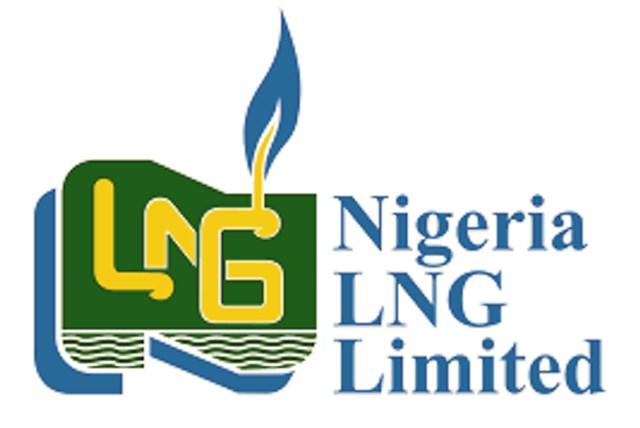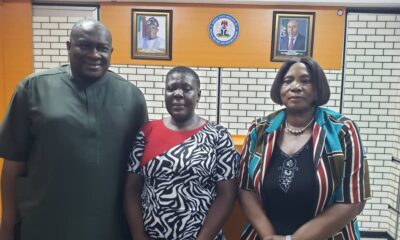Oil & Energy
Marketers Blame Terminal Operators For Hike In Cooking Gas Price

The Nigerian Association of Liquefied Petroleum Gas Marketers (NALPGAM), has, blamed Liquefied Petroleum Gas (LPG) terminal owners and off-takers for the recent hike in the price of cooking gas.
Prices of Liquefied Petroleum Gas, popularly called cooking gas, had gone up by more than 30 per cent, with customers in some parts of the country paying as much as N5, 500 for a 12.6kilograme cylinder of the gas. About a month ago, the price stood at about N2,800 – N3, 000 for the 12.6kg cylinder.
Executive Secretary of NALPGAM, Mr. Bassey Essien in a statement in Lagos last Friday, alleged that the activities of off-takers and terminal owners (where the gas was stored for sales to marketers) was responsible for the rise in the prices of the commodity.
“It becomes necessary to bring to the attention of users of cooking gas, stakeholders in the industry and the government the level of exploitation that currently subsists in the pricing of cooking gas by terminal owners and off-takers,” said Essien.
“The Federal Government approved the allocation of about 350,000 Metric Tonnes (MT) of gas per annum for local consumption through the Nigerian Liquefied Natural Gas (NLNG) company and this has been distributed through the terminals and off-takers to marketers who eventually distribute to end users.
“We noticed recently that gas delivered to terminals and off-takers, which was being sold at N3,200,000 per 20 MT a week ago suddenly jumped to between N4,000,000 and N4,300,000 per 20MT at the terminals, ” Essien alleged.
According to him, the decision of terminal operators to raise the price of the gas from their own end has seen Nigerians paying more in recent weeks that they did a month ago. The marketers, however, maintained that the price structure from the NLNG has not changed.
“We dissociate our association from exploitative acts of terminal owners. It is like taking the industry and stakeholders for granted to the detriment of the efforts of the Federal Government at deepening cooking gas utilisation in the country, which has been yielding positive results, ” Essien said.
Essien said that with this development, many Nigerians would go back to using kerosene and firewood which had attendant health effects.
“A filling station which was selling 300 litres of kerosene a week has seen its sales increased to about 6,000 litres because people who cannot afford gas due to the increment are going back to kerosene.
“This has so many negative effects on the economy, especially as food sellers would have to increase the prices of their food or reduce the quantity not to run at a loss,” he said.
Essien commended the NLNG for its efforts in supplying gas to Nigerians and urged the company to improve on its performance to deliver gas to other coastal terminals outside Lagos to reduce the inherent pressure on the terminals in the South West.
Oil & Energy
Bill Prohibiting Gas Flaring Passes 2nd Reading

The Bill for an act to prohibit gas flaring, encourage commodity utilisation, and provide for penalties and remedies for gas flaring violations has passed its second reading in the House of Representatives.
Sponsored by the Member representing Ikorodu Federal Constituency (APC, Lagos), Babajimi Adegoke Benson, the bill seeks to prohibit the flaring and venting of natural gas, except in strictly regulated circumstances, while encouraging the utilisation of gas resources to foster economic growth and energy generation.
The proposed legislation aims to mitigate the environmental, health, and economic impacts of gas flaring, aligning Nigeria’s oil and gas operations with international climate change commitments.
Offenders, who violate the provisions of the proposed law, would face stringent penalties, including fines of $5 per 1,000 standard cubic feet of gas flared and potential suspension of operations for repeat violations.
Leading debate on the general principles of the bill, Benson said gas flaring has plagued Nigeria for decades, resulting to severe environmental degradation, public health crises, and economic losses while it environmentally, contributes to greenhouse gas emissions, global warming, and acid rain, exacerbating climate challenges.
The lawmaker said public health impacts of the practice are equally dire, as pollutants from gas flaring cause respiratory and cardiovascular diseases, particularly among residents of communities close to flaring sites.
According to him, economically, flaring results in the waste of a valuable resource that could otherwise be harnessed for energy generation or exported to generate revenue.
Benson insisted that the bill was designed to address those issues while bringing Nigeria in line with global standards such as the Paris Agreement on climate change.
“The bill provides for a comprehensive prohibition of gas flaring except in emergencies or when explicitly authorised by the Nigerian Upstream Petroleum Regulatory Commission (NUPRC).
“Operators are required to submit and implement Gas Utilisation Plans, detailing how gas that would otherwise be flared will be captured, processed, or commercialised.
“Offenders, who violate these provisions, face stringent penalties, including fines of $5 per 1,000 standard cubic feet of gas flared and potential suspension of operations for repeat violations. Furthermore, the Bill ensures that communities affected by gas flaring are entitled to compensation and environmental restoration, creating a mechanism for redress.
“Transparency and accountability are integral to the enforcement framework of this Bill. Operators must submit regular reports on gas flaring incidents, which will be audited and made publicly available by the NUPRC. This approach ensures public oversight and stakeholder engagement, fostering trust and compliance.
“Nigeria’s adoption of this Bill positions the country to emulate such success, ensuring a balance between environmental stewardship and economic development.
“The implementation of this Bill will be overseen by the Nigerian Upstream Petroleum Regulatory Commission, which will monitor compliance through regular audits, enforce penalties, and facilitate gas utilisation projects in collaboration with operators and development partners.
“The Anti-Gas Flaring (Prohibition and Enforcement) Bill, 2024, is a timely and necessary response to one of Nigeria’s most pressing environmental challenges. Its provisions are both practical and forward-looking, addressing immediate concerns while laying the groundwork for a sustainable future.
“I urge all Honourable Members to support the Second Reading of this Bill as a demonstration of our collective commitment to environmental protection, public health and economic progress”, he added.
###
Oil & Energy
‘Indigenous Companies To Gain From Shell’s Contract Awards’

Oil major, Shell, has restated its commitment to the development of Nigerian companies through contract awards and scaling up of expertise.
Managing Director, Shell Nigeria Exploration and Production Company ((SNEPCO) Limited, Ron Adams, made the remark while speaking at the Opening Ceremony of the 13th edition of the Practical Nigerian Content forum held in Yenagoa, Bayelsa State, with the theme “Deepening the Next Frontier for Nigerian Content Implementation”.
Represented by the Manager, Business Opportunity, SNEPCO’s Bonga South-West Aparo Project, Olaposi Fadahunsi, he said several benefitting companies had taken advantage of the patronage to expand their operations and improve their expertise and financial strength.
Adams said, “Shell companies execute a large proportion of their activities through contracts with third parties, and Nigeria-registered companies have been key beneficiaries of this policy aimed at powering Nigeria’s progress”.
He emphasized that Shell companies in Nigeria also continued to develop indigenous manpower through scholarship programmes with over 3,772 undergraduate and 109 Niger Delta post graduate scholarships since 2016.
“As we speak, beneficiaries of the 13th edition of the Niger Delta Post Graduate Scholarship awards are pursuing their studies in the United Kingdom. The employability rate of the scheme is high with over 98% of the graduates who won the awards securing employment in the oil and gas industry, academia and Information Technology, among other sectors, within one year of completing their studies”.
He commended the Nigeria Content Development and Monitoring Board (NCDMB) for ensuring compliance with the Nigerian Content Act saying “Nigerian content will continue to be an important part of Shell operations”.
The four-day conference hosted by the Nigerian Content Development and Monitoring Board (NCDMB) and participating companies reviewed progress on the development of Nigerian content pertaining to the implementation of the Nigerian Oil and Gas Industry Development (NOGICD) Act since it was enacted in 2010.
Shell companies in Nigeria are among the more than 700 oil and gas entities that participated in the forum with a strong message of support for Nigerian companies, having awarded contracts worth $1.98 billion to the businesses in 2023 in continuing effort to develop Nigerian content in the oil and gas industry.
Oil & Energy
NNPC Begins Export From PH Refinery

The Nigerian National Petroleum Company Limited (NNPCL) has sold the first cargo of Port-Harcourt low sulfur straight run fuel oil (LSSR) to Dubai-based Gulf Transport & Trading Limited (GTT).
The company is expected to load the cargo in the coming days onboard the Wonder Star MR1 ship, signalling the commencement of operations at the plant and the exportation of petroleum products.
The ship would load 15,000 metric tons of the product, which translates to about 13.6 million litres.
Although the volume coming from the NNPC into the global market is still small, the development has the potential to impact the Very Low Sulphur Fuel Oil (VLSFO) benchmarks in the future, while changing the market realities for Atlantic Basin exporters into Nigeria and other regions.
The sulfur content of the export by NNPC stands at 0.26 per cent per wt and a 0.918 g/ml density at 15°C, according to Kpler, a data and analysis company.
The cargo was reportedly sold at an $8.50/t discount to the NWE 0.5 per cent benchmark on a Free on Board (FOB) basis.
Kpler reported that the development would help displace imports from traditional suppliers in Africa and Europe, as Nigeria’s falling clean product (CPP) imports are already decreasing, dragging imports into the wider West Africa region lower as well.
-

 News15 hours ago
News15 hours agoNigeria Strengthens Economic Ties With Germany To Boost Investment, Jobs
-

 Featured12 hours ago
Featured12 hours agoFubara Flags Off Upgrading Of 135 Primary Healthcare Facilities In Rivers
-
Rivers13 hours ago
Bonny Protest Neglect, Seeks CSR MoU Implementation
-
Nation12 hours ago
FG Begins Tolling On Abuja-Keffi-Akwanga-Makurdi Highway
-
Business13 hours ago
NDYC Seeks NDDC Commercialisation … Uncompleted Projects Completion
-

 Rivers15 hours ago
Rivers15 hours agoCommissioner Promises Improved Working Conditions … Splashes N.1m On Outstanding Caregiver
-
Sports12 hours ago
Sports: 2nd Edition Of Inter-Tribal Tourney Kick-starts In Mbiama
-
Niger Delta13 hours ago
NACAT Inaugurates South-South Office In A’Ibom Against Corruption

